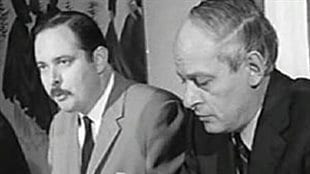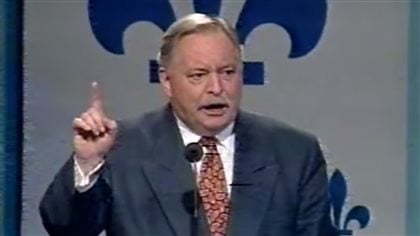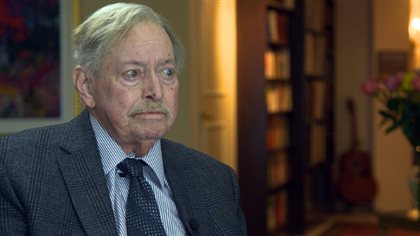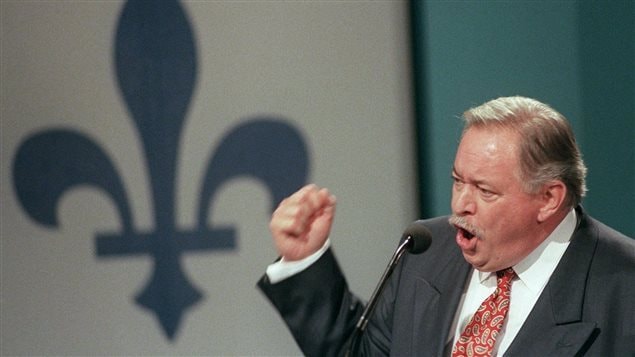(with files from Lynn Desjardins)
Jacques Parizeau has died at age 84.
Premier of the mostly French speaking province of Quebec, minister of the economy in the separatist Parti Quebecois government of Rene Lesvesque before that, he was one of the most important figures in Canadian political history, and the most controversial.
Larger than life, erudite, blustery, intelligent, passionate, uncompromising, and imposing on all fronts, he came close to breaking up Canada and towards creation of a separate country of Quebec. In his decades long hard-line campaign to create a separate country of Quebec, he was loved by his followers, and certainly respected by political opponents.
Antonia Maioni (PhD) is a professor of political Science at McGill University in Montreal and talks about his legacy.
Listen
Jacques Parizeau, a respected economist was in the separatist provincial Parti Quebecois government when it lost the first referendum on sovereignty in 1980.
He left the party in anger when it pushed the sovereignty issue into the background, but later came back, won the leadership and in the 1994 provincial election, became the premier.
This set the stage for the closely and bitterly contested referendum to come the following year.

in October 1995, he came very close to leading Quebec out of the Canadian confederation in the second provincial referendum when residents were asked to vote yes or no as to whether Quebec should leave the country and become an independent nation.
The referendum campaign was intense and the “no” side won by a whisker.
Right after the results came in, a bitter Parizeau shocked the nation by blaming ”money and the ethnic vote” for the loss.
He was roundly criticized from all sides for the seemingly xenophobic remarks. With his reputation, political ambitions, and the PQ itself tarnished by his comments, he had to resign a day later.

Parizeau had been a key economic adviser to the Quebec government in the 1960s. He was instrumental in completing the nationalization of electrical power generation, creating the utility “Hydro-Quebec”. He also created a provincial pension plan, as well as several other economic innovations.

His death was announced by his wife on a Facebook posting in French, which translated as “In peace, surrounded by love. After a titanic battle, hospitalized for five months, traversing challenges one after the other, with extraordinary courage and determination, he left us tonight, June 1, just before 8 p.m. We’re devastated. We loved him and always will love him.”







For reasons beyond our control, and for an undetermined period of time, our comment section is now closed. However, our social networks remain open to your contributions.